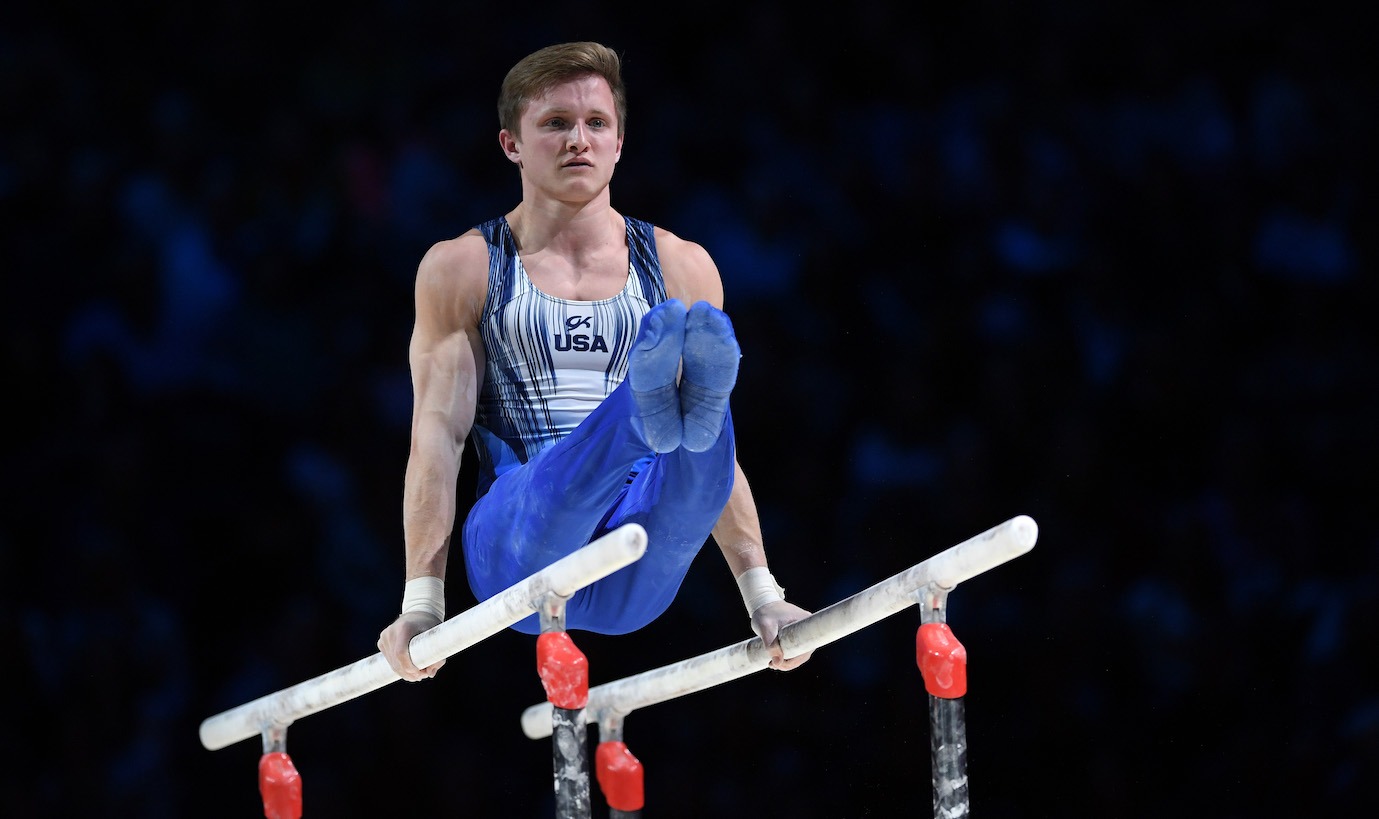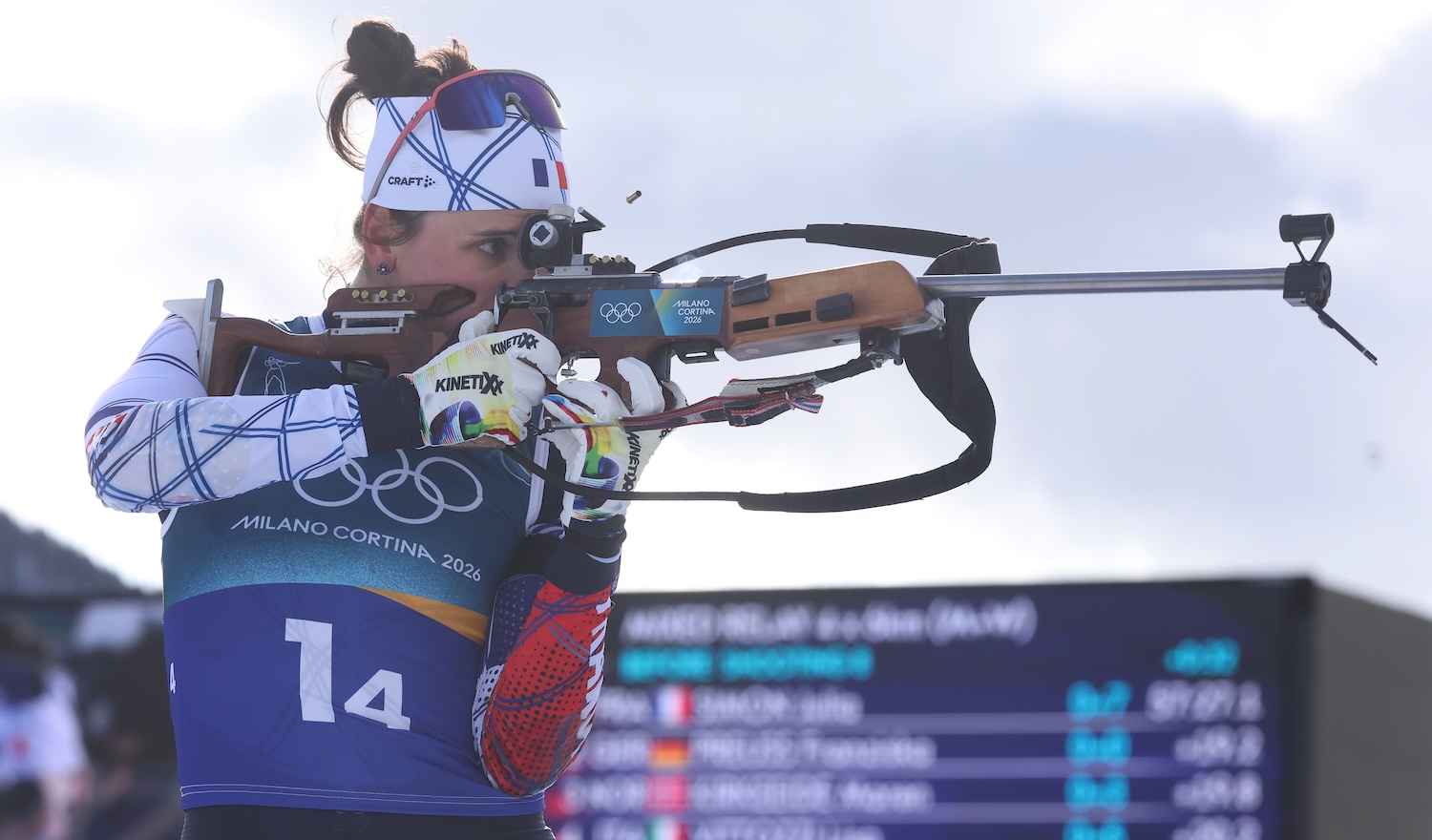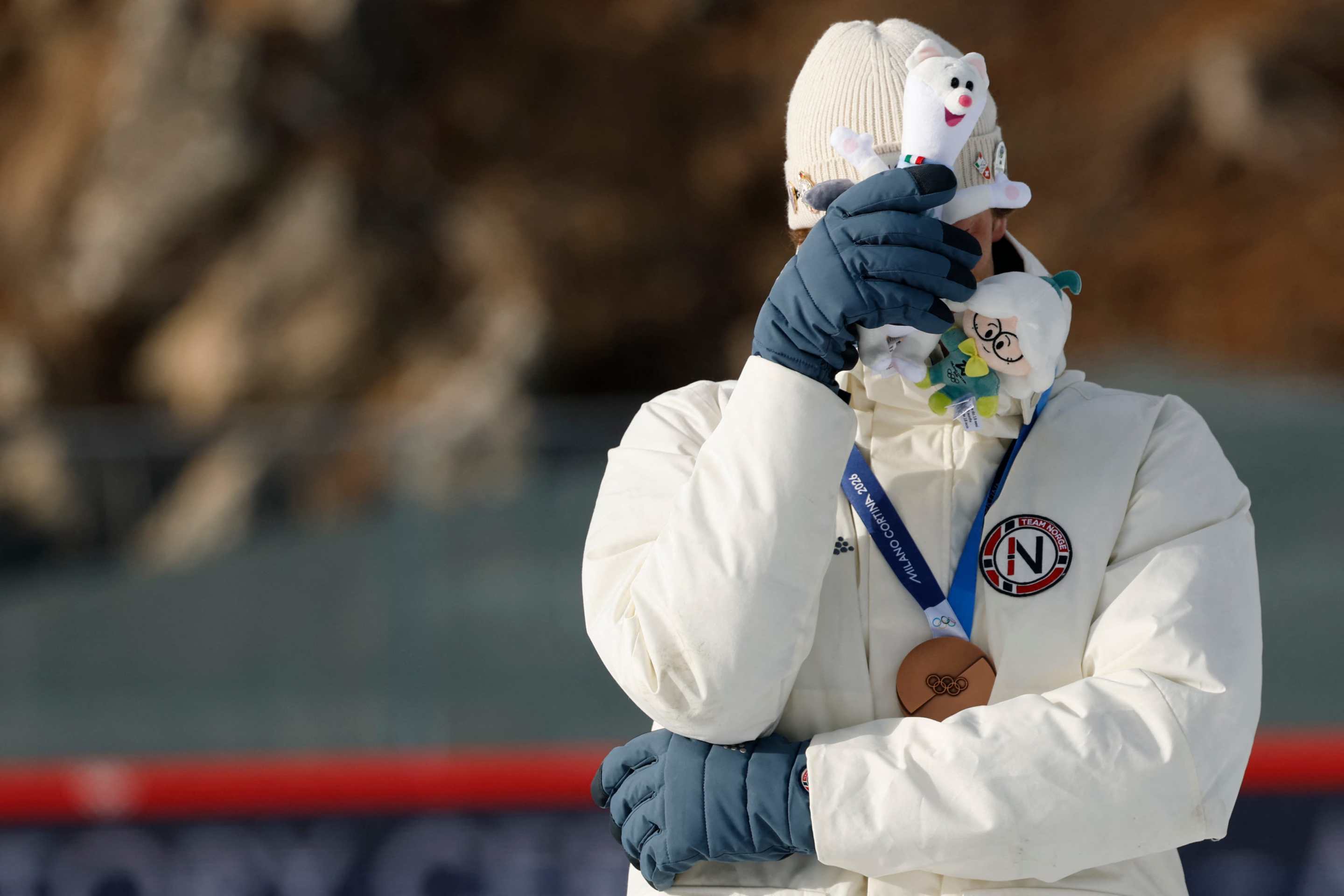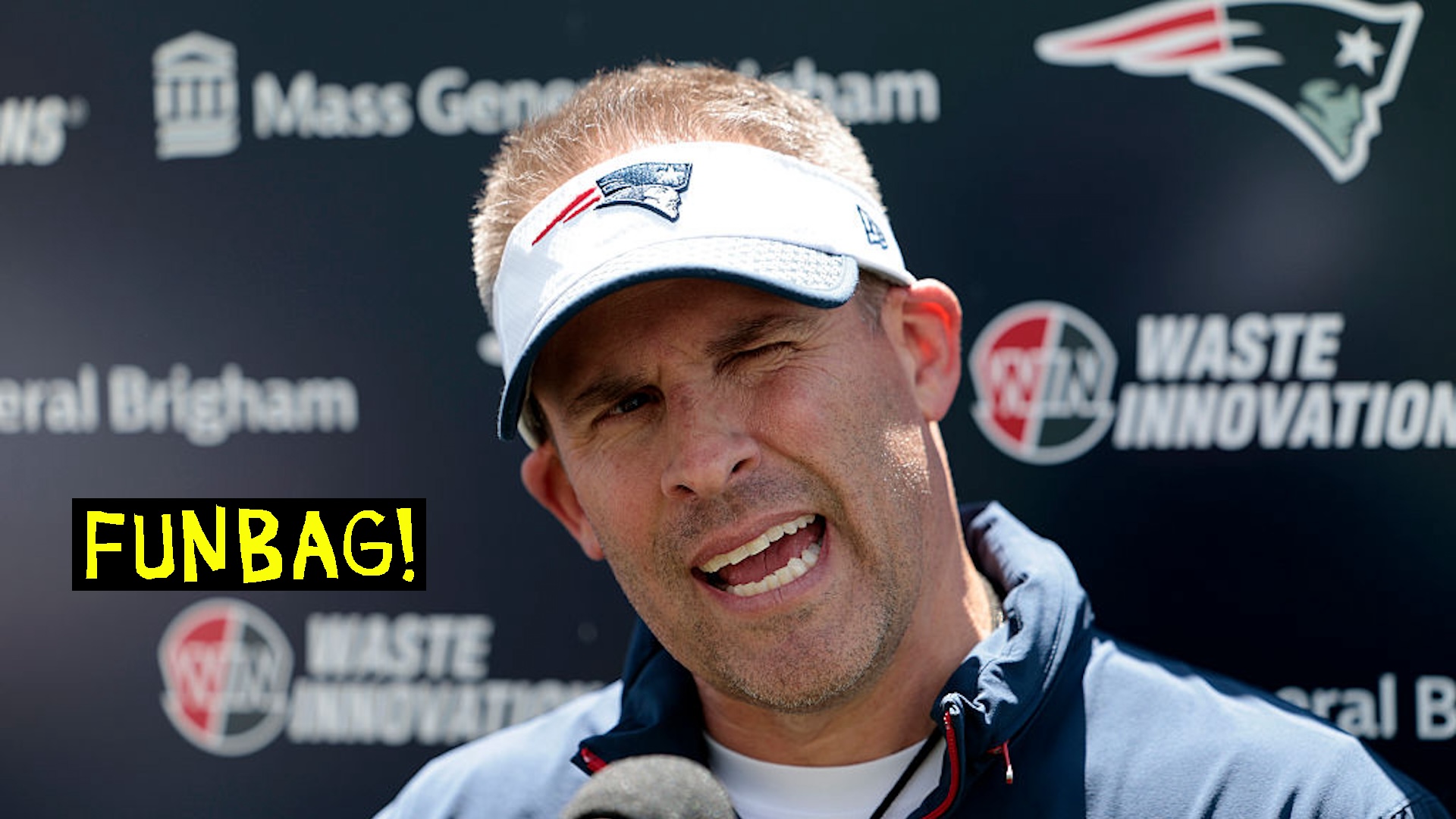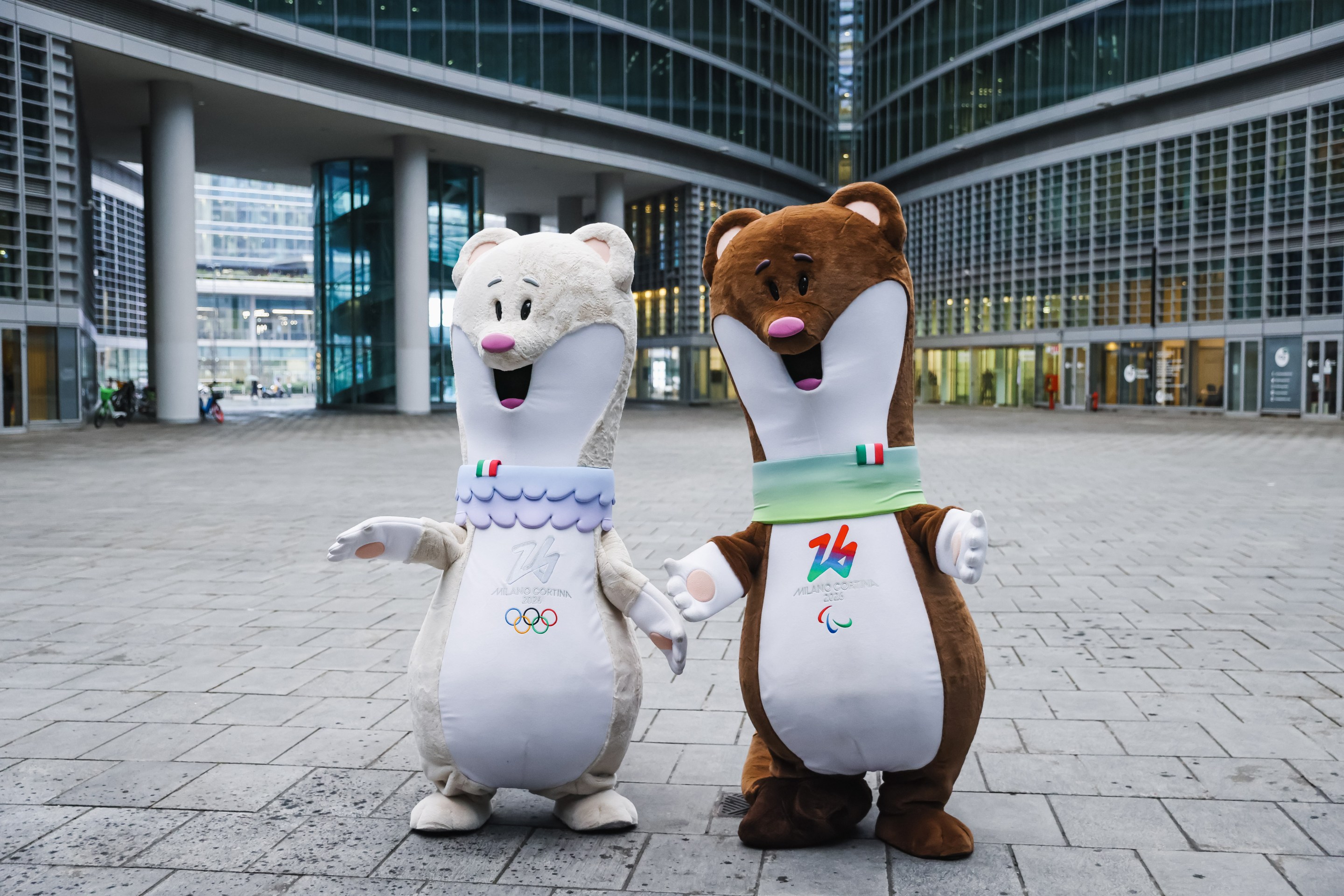The allegedly reformed version of USA Gymnastics—the organization that was, at one point, going to be decertified after women’s national team doctor Larry Nassar sexually abused gymnasts for decades—claims it has five core values. They are listed on the first page of the High Performance Plan, just underneath the new mission statement. They go: safety, accountability, integrity, transparency and listening. USAG also likes to claim, in that same document, that it is now “a new organization led by new leadership with a new athlete-centric mission and a new set of values that prioritizes athlete safety and wellness while still supporting athletes to achieve their athletic dreams.”
Yet, over the weekend, a GoFundMe titled "Let's FUND Allan Bower since USAG WILL NOT!" went viral. The online fundraiser was started to raise money for Olympic men’s team alternate Allan Bower because, just days after he was selected as an Olympic alternate, he learned that USAG left him out of their group of funded athletes.
A funded athlete is a gymnast who is getting a stipend of about $1,800 to cover their expenses while they train for the Olympics. Funded athletes also get health insurance and, at 26 years old, Bower is too old to be on his parent’s health insurance, and he only has a part-time job hosting gymnastics fitness videos. No funding meant that Bower was expected to train for the Olympics without health insurance and for free.
(According to its own IRS tax documents, USA Gymnastics in 2019 brought in more than $26 million but claimed more than $31 million in expenses, including more than $6 million in legal expenses. CEO Li Li Leung is paid a salary of $376,724. Earlier this year, the Orange County Register reported that USAG spent “$1.02 million on direct support to 73 elite athletes in 2019.”)
Bower first made the men’s national team in 2015 and he has been a member uninterrupted since 2017, making him a three-time alternate for the world championships team. Bower finished seventh all-around at the Olympic Trials held in June and was selected as an alternate. But because he was not also selected to compete at the world team selection camp in September for a chance to make the world championships team, Bower was the only Olympic alternate not funded.
When he found out he would not be funded, Bower said he felt betrayed. He finished fifth in the all-around at this year’s U.S. Championships. He went 12-for-12 in his sets, and another perfect 12-for-12 in his routines at the Olympic Trials. He trained out of a teammate’s garage during the lockdown due to COVID-19, then he took a volunteer assistant coaching position at the University of Oklahoma just to be able to get back in the Oklahoma gym with his coach Mark Williams, who is also Oklahoma’s head coach. He's nearing the end of his gymnastics career because he wants to go to medical school.
“I hit 24 for 24 sets, I went out with a bang and I was very excited to be an alternate,” Bower said. “But unfortunately, that happiness was taken away from me—and now it’s almost to the point where I feel like I am getting pushed out of the sport by not being invited to the world team camp.”
And, on top of all that, he didn’t even find this out directly from USAG.
Here’s how Bower found out: Bower’s coach, Mark Williams, also coaches gymnast Gage Dyer, who is not an Olympic athlete but was invited to the world team selection camp. Williams got an email on July 1 telling him that Dyer had been selected for the camp and therefore he would receive funding. But Williams didn’t see Bower’s name on the list of the 12 funded athletes, so he told Bower to check his email, thinking he would have been sent an explanation as to why he was not invited to the selection camp and therefore didn’t get funding. Bower did not have such an email.
“So essentially his funding ended at the Olympic Trials,” Williams said, “and you are asking him to then train for another three or four weeks through the Olympic Games unfunded.”
Williams, on top of coaching elite gymnasts, also has been the head coach for Oklahoma men’s gymnastics since 2000, and he’s in the USA Gymnastics Hall of Fame. Outraged, Williams said he called up Brett McClure, the men’s gymnastics high performance director, and Jason Woodnick, vice president for men’s gymnastics. Williams said that they both told him that they were following the selection procedures for funding, which was that the athletes who would receive the stipends had to be either on the Olympic team (but not an alternate) or invited to the world team selection camp. Bower did not fit either criteria, so he wasn’t going to get the stipend. (As of publication time, USAG did not reply to a request from Defector Media to speak to Woodnick or McClure.).
“I was, like, that is ridiculous,” Williams said. “I think you need to go back and review at least funding him, because he is not going to do community service for you to be an Olympian.”
McClure, according to USAG’s 2019 tax documents, was paid a salary of $110,788. Woodnick was not working with USAG in 2019.
Bower said he too called McClure and asked him to explain what was going on, telling him, “I am really left out of the loop and very confused.” McClure gave him generic responses, Bower said, about how important he is to the program and how they don't want his gymnastics career to go unnoticed.
“I ended up just getting a little fed up with the conversation and I was like alright, uh huh. Yep. Sure. Yeah,” Bower said. “And then I ended the call.”
Later that day, after both Williams and Bower said they made these phone calls, Williams got a text from Woodnick that said Bower would get funding through the end of August. At that time, there was no official confirmation via email or any document sent, just a text, Williams said. Every other Olympian or Olympic alternate, Williams said, is funded through the end of February.
Williams and Bower also still didn’t have answers to if Bower would have health insurance. This meant Bower reported to Olympic team camp in Colorado Springs on July 5 without knowing if he had it, let alone if he would receive coverage for the Tokyo games.
“I am supposed to go to Tokyo and practice these very dangerous skills,” Bower said. “I had been pretty frantically looking around trying to figure out how I can afford this, if I can even get health insurance in time.”
At the team camp, which started on July 5 in Colorado Springs, Bower said his teammates and their coaches asked him about what they could do to help and wondered if there was some mistake. But with McClure and Woodnick, “It was, ‘Hey, how is your shoulder doing? How are you feeling? Are you ready for the competition?’” Bower said. “I could tell that we were both very uncomfortable with the conversation, yet it was never brought up my situation. It was never discussed by anybody there.”
Training camp closed on Saturday. While he and Bower sat at the airport, Williams composed a Facebook post about what was happening. Both were still unhappy with how the week went, without any communication, and with Bower only receiving funding through August. While they waited for their flight, Williams shared Bower’s story to his Facebook page and explained how USAG was funding every Olympic alternate member except Bower, also not selecting him to the world team trials, and not communicating all of this to him.
“Nothing that has happened could be reasonably seen as 'athlete-centric.'” Williams wrote. “If we want gymnasts to leave the sport with positive feelings about their time at the elite level, we need to start treating ALL of them like they matter—because they do.”
Williams's post spread around the gymnastics community, and the next day, Steven Legendre, a former national team gymnast that Williams coached, created a GoFundMe fundraiser for Bower.
“So, how do you reward an athlete who has given his heart and soul to this sport for nearly his entire life to get to a level of mastery that on one of the biggest competitive stages in the world you can hit 100% of your routines?” Legendre wrote. “Apparently it is with a lack of funding, lack of communication, and a massive display of unappreciation. Well I say BULLSHIT. Maybe USAG isn't currently willing to support Allan the way that he should be supported, but WE CAN.”
The GoFundMe raised $25,000 in 24 hours and is now just $2,000 away from the $45,000 goal. Simone Biles shared the link on her social media accounts and Bower said she personally reached out to him. Bower said he called Aly Raisman after she sent him her number, and she offered advice on dealing with USAG and told him he could have a free conversation with her lawyer. Even GoFundMe’s own Twitter account shared the fundraiser for Bower, tweeting out, “Our athletes deserve better!”
That $43,000 will allow Bower to continue to train past August and is well over what he would have made from USAG’s funding. He lives with his fiancée, who doesn’t work because she’s in school to become a dietician. Bower said he’s good at saving money but, even so, the funding from USAG, “doesn’t stretch very far.”
“When they said they were cutting my funding, there were so many different things going through my mind,” he said. “We are saving up for a wedding, we're paying for school, we're paying rent, food, car payments, insurance, everything. It was just this massive amount of stress flung on me without consultation at all.”
A message from Allan Bower 👇
— Mark Williams (@wellsgymn) July 13, 2021
Can honestly say the community's outpouring of support and generosity has blown us all away and, because Allan is who is he, he plans to pay that forward. https://t.co/nkOZaYSb5z pic.twitter.com/eXDEsRkXXr
On Tuesday, Williams finally got confirmation that Bower would have health insurance through August. Williams said he was told there’s a possibility to get it extended through the USOPC longer, but there’s no answer on that yet. Bower also got what he described as a “very generic, like legally correct” email from the staff of USAG about mental health resources, the first he had heard from the USAG since the Facebook post. But on that same day, which was when he talked to Defector, Bower still hadn’t received his July stipend. He said he’s been checking his bank account app every couple hours to see if the deposit is there. “The stress just continues to pile up,” he said.
(USAG did eventually release a statement addressing what happened. According to Inside Gymnastics magazine, it said, “This situation has exposed a number of limitations in the funding structure and process, including in our own communication, that we deeply regret. We will immediately begin to work with the USOPC to improve the structure for future cycles. We sincerely apologize to Allan for the personal impact this has had on him at such an important time in his athletic career.”)
Bower is a quiet guy and he doesn’t like to rock the boat, so he hesitated at first when his coach asked to post about what was happening on Facebook, but he was so angry, he decided, “You know what, screw it.” He said he felt a sense of relief when his coach put the organization on blast, but he’s still afraid that he’ll face some kind of retaliation from USAG.
“When we first started speaking out about what was going on, in the back of my mind, I was thinking this could really affect my chances to compete as an alternate if that time does come,” Bower said. “I almost felt like I couldn’t speak out because they would use it against me. That was how it made me feel and made my coach feel.
“They talk about giving athletes a voice and they want to hear feedback but when we give feedback, that’s how we feel. You feel like you are suppressed and you can't say anything without getting in trouble or that coming back to haunt you. So unfortunately, it's almost like a little bit more of the same. I don't want my situation at all to be compared to the traumas that the girls went through, not even in the slightest, but it's just like athletes, we don't feel like we have a voice.”
Despite USAG originally deciding not to fund him, Bower said he never considered not fulfilling his role as an Olympics alternate. “If I could do this position on my own, and I know Simone talks about that a lot, how she's like, if I didn't have to have USAG and I could just go to the Olympics by myself, I would,” he said.
Because of the gymnastics community, Bower now has the money he needs to continue training past August, but without an invite to the World Selection Camp, he has nothing to train for this year after the Olympics. The only avenue left is to file a grievance with the USOPC, but Bower said he’ll wait to decide on that until after these Olympic games.
On Thursday, Bower and Williams will board a flight to Tokyo. Bower knows that when he gets there, things aren’t going to be all hunky-dory.
“Unfortunately it is going to be uncomfortable, that’s just how it is,” he said. “But with the support I have from the guys and all the other coaches, I am just going to go in and enjoy the process. I have been training for this moment my entire life, so I am not going to let them rip this away from me as well.”
